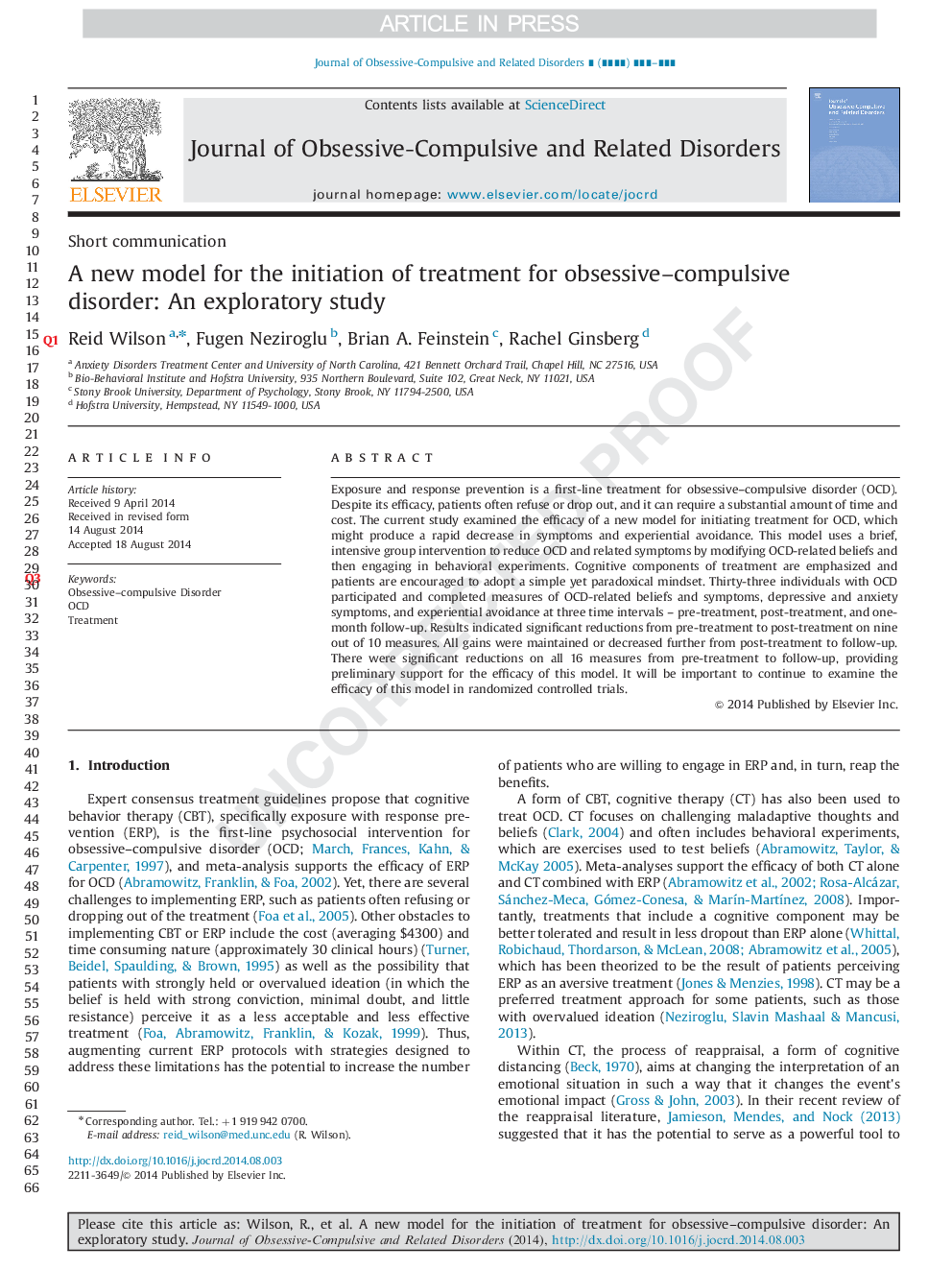| Article ID | Journal | Published Year | Pages | File Type |
|---|---|---|---|---|
| 10448936 | Journal of Obsessive-Compulsive and Related Disorders | 2014 | 6 Pages |
Abstract
Exposure and response prevention is a first-line treatment for obsessive-compulsive disorder (OCD). Despite its efficacy, patients often refuse or drop out, and it can require a substantial amount of time and cost. The current study examined the efficacy of a new model for initiating treatment for OCD, which might produce a rapid decrease in symptoms and experiential avoidance. This model uses a brief, intensive group intervention to reduce OCD and related symptoms by modifying OCD-related beliefs and then engaging in behavioral experiments. Cognitive components of treatment are emphasized and patients are encouraged to adopt a simple yet paradoxical mindset. Thirty-three individuals with OCD participated and completed measures of OCD-related beliefs and symptoms, depressive and anxiety symptoms, and experiential avoidance at three time intervals - pre-treatment, post-treatment, and one-month follow-up. Results indicated significant reductions from pre-treatment to post-treatment on nine out of 10 measures. All gains were maintained or decreased further from post-treatment to follow-up. There were significant reductions on all 16 measures from pre-treatment to follow-up, providing preliminary support for the efficacy of this model. It will be important to continue to examine the efficacy of this model in randomized controlled trials.
Related Topics
Health Sciences
Medicine and Dentistry
Psychiatry and Mental Health
Authors
Reid Wilson, Fugen Neziroglu, Brian A. Feinstein, Rachel Ginsberg,
